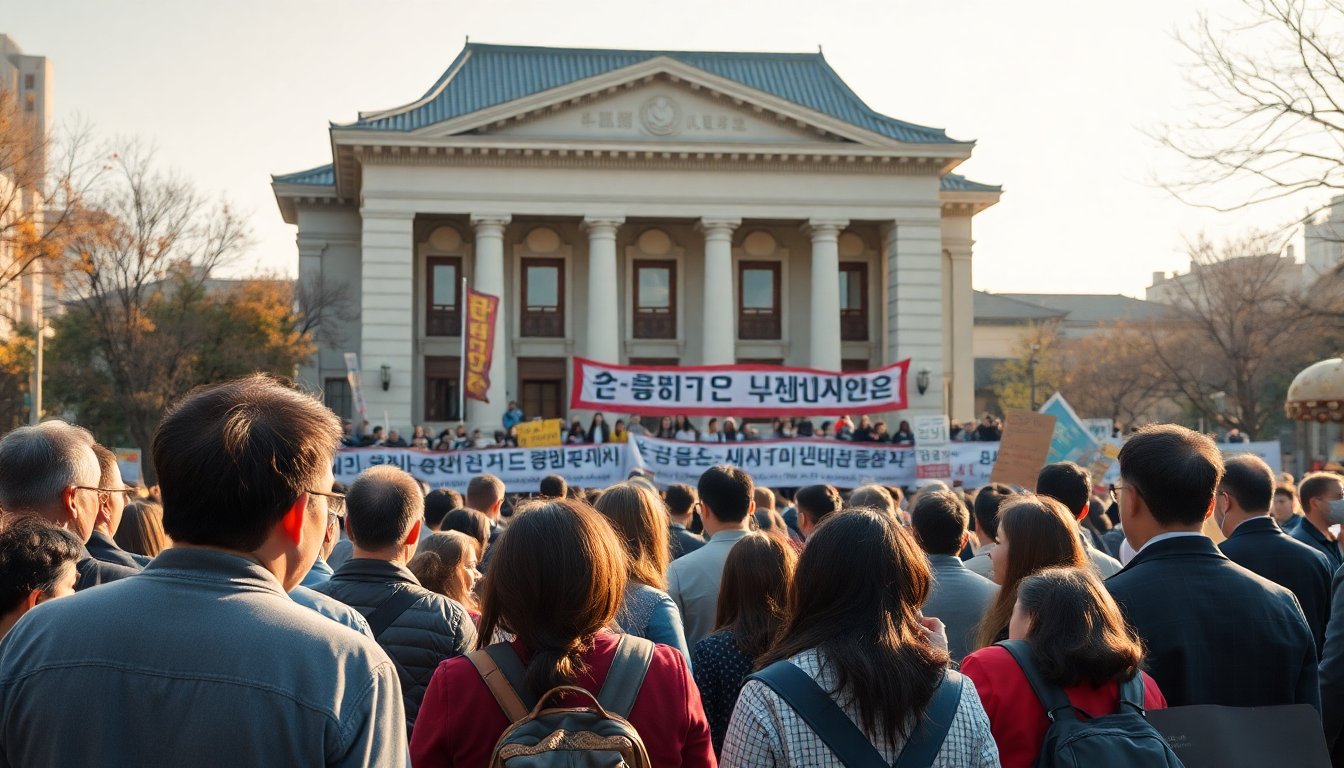Table of Contents
The world of entertainment frequently faces scrutiny regarding sexual misconduct, and recent events involving South Korean actor O Yeong-su have brought this issue back into focus. Best known for his role in the Netflix hit series Squid Game, O became embroiled in a legal dispute after being convicted of sexual harassment. However, developments have led to a significant reversal of his conviction.
On November 11, an appellate court in Suwon overturned the earlier ruling that found O guilty of indecent assault. The court’s decision to acquit the 81-year-old actor has raised questions and sparked discussions about the implications of such rulings in the context of the ongoing fight against sexual violence.
Details of the case
The accusations against O Yeong-su stemmed from an incident during a theater tour in 2017. The alleged victim claimed he hugged her and kissed her on the cheek without her consent, actions she interpreted as offensive. Following the incident, she sought counseling for sexual violence six months later and requested an apology from the actor, which he provided. These points were taken into account during the legal proceedings.
Initial ruling and responses
In the initial trial, the court deemed O guilty, imposing an eight-month prison sentence that was suspended for two years. Prosecutors had requested a one-year sentence, emphasizing the seriousness of the allegations. Following the conviction, the victim expressed her determination to continue advocating for her truth, stating that the acquittal would not erase her pain.
Womenlink, a women’s rights organization, also voiced their outrage at the appellate court’s ruling. They criticized the decision, arguing that it perpetuates a culture of silence surrounding sexual violence in the entertainment industry. This response underscores the crucial need for accountability in cases of alleged misconduct.
The appellate court’s reasoning
In their decision to acquit, the appellate court acknowledged the existing doubts surrounding the case. While they recognized the victim’s claims and the subsequent counseling she received, the judges expressed concerns about the reliability of her memory over time. They stated that, in light of potential distortions in recollection, it was essential to prioritize the defendant’s rights when uncertainties remain.
The broader impact on the industry
The outcome of O Yeong-su’s case not only affects the individuals involved but also sheds light on the broader implications for the South Korean entertainment sector. The actor, who gained international fame for his performance in Squid Game, now faces a complicated legacy as this legal battle unfolds. His legal challenges pose significant questions regarding the mechanisms in place for addressing allegations of sexual misconduct in the arts.
As the entertainment industry grapples with its own accountability measures, the case serves as a reminder of the ongoing struggle against sexual violence. While the legal system seeks to uphold the rights of both victims and defendants, the experiences of those involved can leave lasting scars. This case highlights the necessity for continued discourse and reform to foster a safer environment for all within the industry.
Significance
The acquittal of O Yeong-su represents a crucial development that raises important questions about the treatment of sexual misconduct allegations in the entertainment world. As discussions around accountability and justice continue, it remains essential to consider the implications of such rulings on victims and the broader community. Moving forward, the fight against sexual violence must persist, demanding not only legal reforms but also a cultural shift within the industry.


